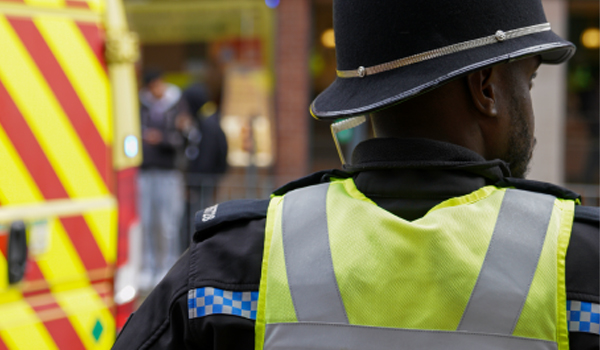First ever progress report on Police Race Action Plan published
The landmark plan to make policing anti-racist has published its first ever report outlining the project’s progress to date.
The document outlines delivery by the Police Race Action Plan (PRAP) across policing to improve representation, address disproportionality and involve Black communities more in its governance since the plan was published in May 2022.
The progress report also renews the case for the plan to keep its focus on improving policing for Black communities, with huge strides forward still needed if the plan is to achieve the ambitions it originally set out.
Every chief constable in England and Wales is committed to supporting the PRAP, which was launched in the aftermath of the murder of George Floyd and the renaissance of the Black Lives Matter movement four years ago.
In that time the plan has spearheaded delivery of projects across its four workstreams, which aim to address internal culture and representation, police use of powers, community engagement and the protection of black victims respectively.
These range from educational products on black history and its connection to policing, mentoring programmes as well as setting up new panels drawn from black communities to advise and guide various aspects of policing.
The plan has driven better recording of ethnicity data and traffic stops, peer to peer conversations between senior police officers and black executives, as well as a major focus on improving the police response to black missing people.
Individual police forces have been busy delivering their own local work in support of the plan too, to complement the work being led nationally by the College of Policing and the National Police Chiefs’ Council.
The progress report outlines what the plan will focus on over the coming months, much of which has been shaped by feedback from black communities.
This includes work on reforms to police stops, including stop and search, and improving the retention of black police officers and staff already working in the service.
Over the coming months the PRAP will also pilot new trauma informed community engagement models to improve the trust and confidence of black communities, and continue to ensure that the experience of black victims informs wider work across policing, such as the response to violence against women and girls.
This work has coincided with progress across policing to meet five commitments made in the original PRAP, with positive signs of progress outlined in the report around recruitment and promotion of Black officers, disproportionality in use of powers such as stop and search, as well as more police officers, staff and volunteers being dismissed for discriminatory behaviour.
But the report also makes clear the disproportionality and negative outcomes black communities both inside and outside policing continue to face from the service.
Black people remain underrepresented in policing, are more likely to be arrested, stopped and searched or have force used against them, and have lower levels of trust and confidence overall in police than the general population.
Alongside the progress report, the PRAP has published a summary of its recent consultation and engagement activities, with the plan over the spring having commissioned 13 projects to reinvigorate the plan’s engagement work and get the views of black communities.
More than 800 people have attended in person events or projects as part of this programme, which includes more than 400 school, college or university students.
Programme director T/Deputy Assistant Commissioner Dr Alison Heydari, who has been at the helm of the programme since September, said: “The Police Race Action Plan is a watershed moment for policing. This plan to make our service anti-racist is something we must get right, and we must do it now.
“I have seen first-hand the vast amounts of effort, energy and ideas that thousands of people both inside and outside policing are doing to deliver this plan and improve policing for Black communities. This collective will is extraordinary and a huge source of pride for me as programme director.
“This progress report I hope captures some of these remarkable efforts and provides reassurance to black communities that this plan remains of significant importance to policing.
“Earlier this month our Independent Scrutiny and Oversight Board acknowledged improvements in the plan over recent months, and set the plan three key recommendations. We have accepted these recommendations and this report sets out a lot of the work we are doing to address them.
“We have outlined a clear focus for our national work over the coming months and detailed the huge improvements we have made around consultation and engagement, as well as where this has shaped our plan. In the autumn we will publish an update to the plan which puts it on a long-term footing, including a data and performance framework to set clear targets for our future delivery.
“These are undoubtedly positive steps forward. However, I also accept the vast scale of the challenge. There is deep, generational trauma and mistrust between black communities and the police, which sadly will have only deepened for many people in the wake of further incidents and reports since the plan was launched.
“This is something we in policing must take responsibility to address and deliver. I would urge all my colleagues in our service to renew their efforts and understanding of an anti-racist police service and how they can play their part in delivering the change policing needs and black communities deserve.”


